Chi-Shiang Wang
CUAB: Convolutional Uncertainty Attention Block Enhanced the Chest X-ray Image Analysis
May 05, 2021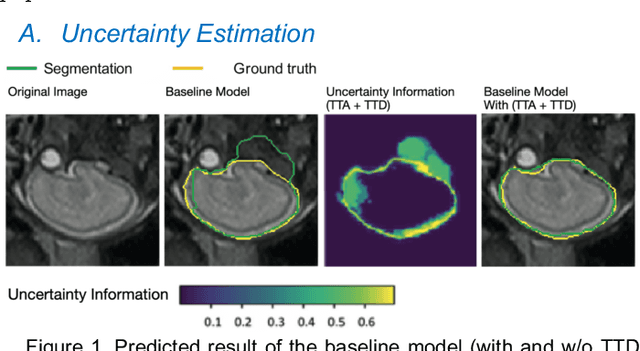
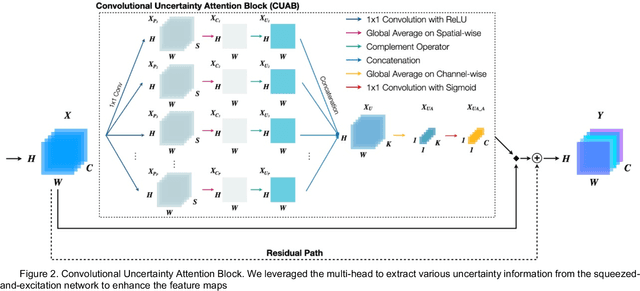
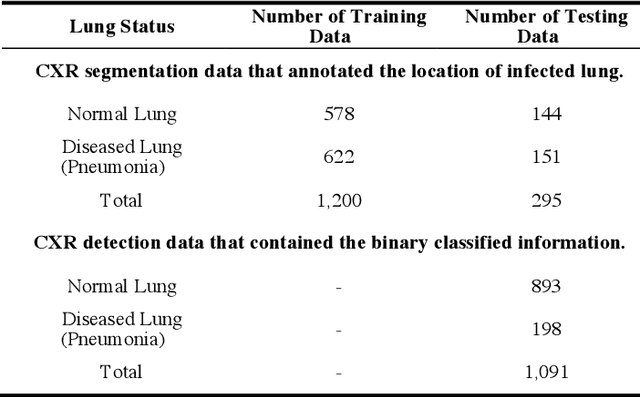
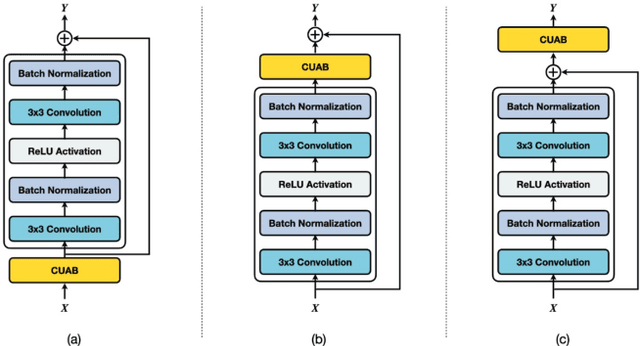
Abstract:In recent years, convolutional neural networks (CNNs) have been successfully implemented to various image recognition applications, such as medical image analysis, object detection, and image segmentation. Many studies and applications have been working on improving the performance of CNN algorithms and models. The strategies that aim to improve the performance of CNNs can be grouped into three major approaches: (1) deeper and wider network architecture, (2) automatic architecture search, and (3) convolutional attention block. Unlike approaches (1) and (2), the convolutional attention block approach is more flexible with lower cost. It enhances the CNN performance by extracting more efficient features. However, the existing attention blocks focus on enhancing the significant features, which lose some potential features in the uncertainty information. Inspired by the test time augmentation and test-time dropout approaches, we developed a novel convolutional uncertainty attention block (CUAB) that can leverage the uncertainty information to improve CNN-based models. The proposed module discovers potential information from the uncertain regions on feature maps in computer vision tasks. It is a flexible functional attention block that can be applied to any position in the convolutional block in CNN models. We evaluated the CUAB with notable backbone models, ResNet and ResNeXt, on a medical image segmentation task. The CUAB achieved a dice score of 73% and 84% in pneumonia and pneumothorax segmentation, respectively, thereby outperforming the original model and other notable attention approaches. The results demonstrated that the CUAB can efficiently utilize the uncertainty information to improve the model performance.
PSO-based Fuzzy Markup Language for Student Learning Performance Evaluation and Educational Application
Feb 24, 2018
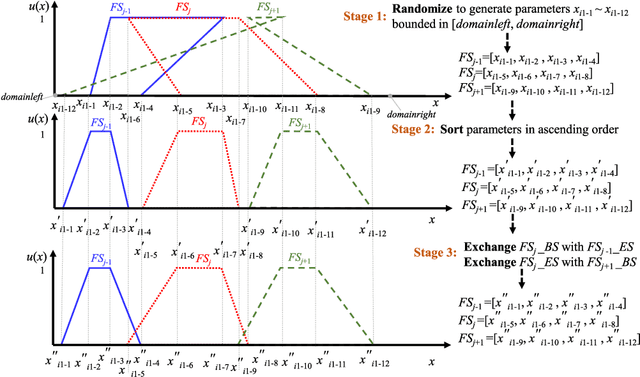
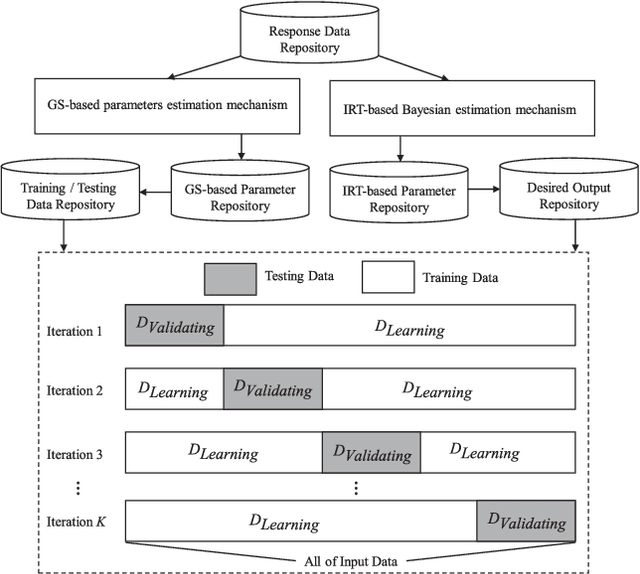
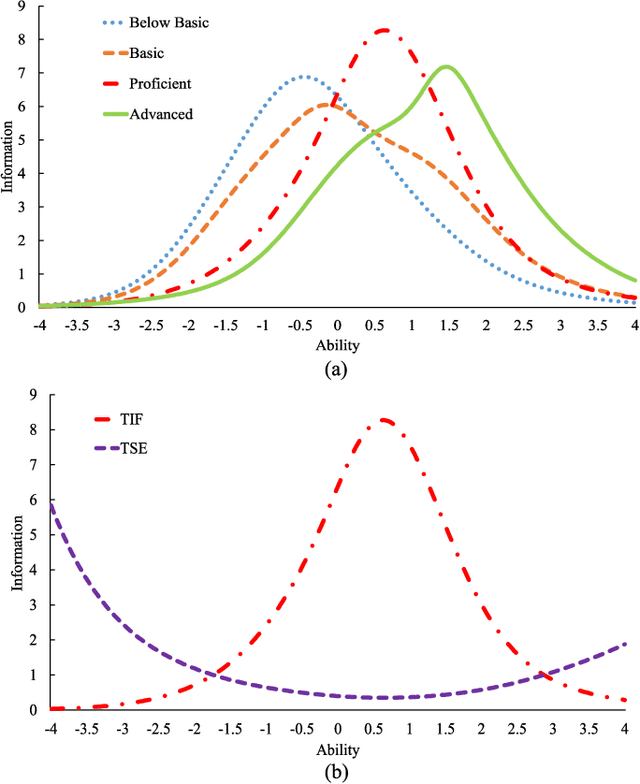
Abstract:This paper proposes an agent with particle swarm optimization (PSO) based on a Fuzzy Markup Language (FML) for students learning performance evaluation and educational applications, and the proposed agent is according to the response data from a conventional test and an item response theory. First, we apply a GS-based parameter estimation mechanism to estimate the items parameters according to the response data, and then to compare its results with those of an IRT-based Bayesian parameter estimation mechanism. In addition, we propose a static-IRT test assembly mechanism to assemble a form for the conventional test. The presented FML-based dynamic assessment mechanism infers the probability of making a correct response to the item for a student with various abilities. Moreover, this paper also proposes a novel PFML learning mechanism for optimizing the parameters between items and students. Finally, we adopt a K-fold cross validation mechanism to evaluate the performance of the proposed agent. Experimental results show that the novel PFML learning mechanism for the parameter estimation and learning optimization performs favorably. We believe the proposed PFML will be a reference for education research and pedagogy and an important co-learning mechanism for future human-machine educational applications.
 Add to Chrome
Add to Chrome Add to Firefox
Add to Firefox Add to Edge
Add to Edge